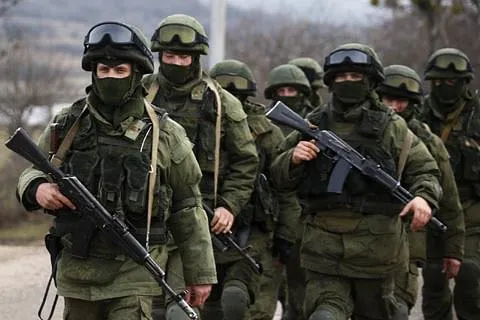India’s diplomatic activity has quickened over the past few months. Consequently, the country’s leadership has been actively engaged with all parties to the conflict, and others too, in the principal contemporary global concern—Russia’s invasion of Ukraine. At the same time India is purposefully interacting with countries in the immediate and extended neighbourhood. These states include Sri Lanka which is acute crisis and Turkmenistan which recently welcomed President Ram Nath Kovind.
There was a flurry of visits last week from countries directly involved in the Ukraine-Russia armed conflict. The British Foreign Secretary, the Russian Foreign Minister, the US Deputy National Security Adviser for International Economics were in Delhi to project their views. Apart from its natural influence in the world, India’s current membership of the United Nations Security Council (UNSC) has made it a significant voice on the conflict. Hence, concerned countries want it to be persuaded to their viewpoint. These are diametrically different not only between Ukraine and Russia but also between NATO on one side and Russia which has China’s underlying support on the other.
Ukraine and NATO want India to outrightly condemn the Russian invasion. On the other hand Russia wants it to understand the motivations which led it to undertake what it describes as a ‘special military operation’. While India’s position at the UNSC has evolved it has adopted a nuanced and balanced stand. Before the invasion Indian statements at the UNSC on Ukraine-Russia mentioned the need to take the ‘security interests’ of concerned states into account. This was essentially a reference to Ukraine and NATO showing sensitivities to Russian perceptions of vulnerability because of the eastwards expansion of NATO over the past two and half decades. Russia is convinced that in doing so NATO has reneged on the verbal commitments given by the United States and European leaders to Soviet leaders in the closing years of the cold war. According to these assurances NATO would not make either the constituent states of the Soviet Union nor the Warsaw Pact countries members of the Alliance. However, that was not to be. Russia drew a red line on Ukraine’s membership of NATO.
Once Russia invaded Ukraine India dropped any reference to security of states. Instead its statements emphasised the need to respect the sovereignty and territorial integrity of states. Along with this it also stressed that diplomacy, negotiations and dialogue were the valid ways to address disputes and differences. While making these points which were an indirect criticism of what Russia had done India abstained in votes at the UNSC and other UN forums to condemn the Russian invasion. Naturally, NATO countries urged India to join them in condemning the Russian action. They have continued to do so during virtual and in-person interactions.
In Delhi the veteran Soviet Foreign Minister expressed satisfaction at India’s pursuit of an independent foreign policy though he too would have noticed the shift in India’s stand. Lavrov’s focus was also on Indo-Russian trade, including on his countries defence supplies to India. Western financial sanctions on Russia is making it necessary for both countries to strengthen payments arrangements which avoid US or European currencies. Lavrov said that this process was underway. Whatever Lavrov may say in the long term this will be a challenge. India would also be carefully assessing the disruptions in critical defence supplies which will inevitably result from the Ukraine war. Indian planners would have taken this into account and would be taking steps to mitigate problems that may arise from these dislocations.
While India will have to fully focus on the implications of the Ukraine war, including on the global economy, it cannot avoid developments in its neighbourhood. In this context Sri Lanka which is in the throes of social and political unrest arising out of an economic melt-down demands special attention. India is extending substantial help through energy, food and pharmaceutical supplies. While this process has to continue India will have to take special care to ensure that the Sri Lankan people do not perceive this assistance as an attempt to shore up the present government led by President Gotabaya Rajapaksa. The Rajapaksa brothers have had an iron grip on Sri Lankan politics. Naturally, they are the target of great public anger at present. There are demands that the President should resign but he appears in no mood to do so.
India’s continuing attention to Central Asia was reinforced by President Kovind’s visit to Turkmenistan on April 1-4. Turkmenistan which became independent after the dissolution of the Soviet Union and follows a doctrine of permanent neutrality. It maintains contacts with all and does not take positions of specific disputes. Was it because of its doctrine that India-Turkmenistan Joint Statement issued during the President’s visit completely ignores the situation in Afghanistan, a neighbour of both India and Turkmenistan? It is also noteworthy that there is no mention at all of the Russian invasion of Ukraine in the Joint Statement. It does focus though on the threat of pandemics and of terrorism to humanity.
Turkmenistan is adjacent to Iran and is a connectivity gateway for India further into Central Asia via the Chabahar port in Iran. President Kovind correctly mentioned that it should be included in the “framework” of the International North-South Transport Corridor. Turkmenistan has vast reserves of natural gas. The proposal to transport it to India and Pakistan through a pipeline is one to which India has been interested but to begin with conditions in Afghanistan will have to be conducive for such a pipeline. That is not on the horizon.
Disclaimer: The views and opinions expressed in this article are the personal opinions of the author. The facts, analysis, assumptions and perspective appearing in the article do not reflect the views of GK.







